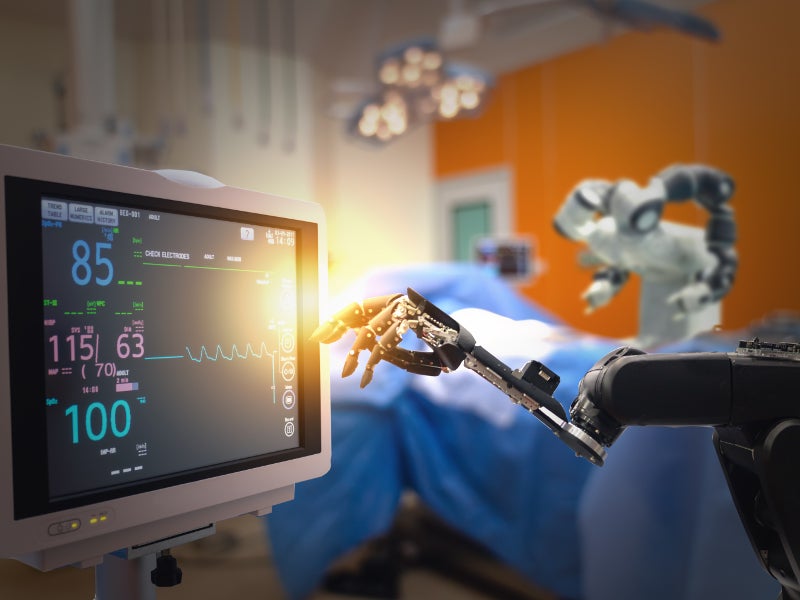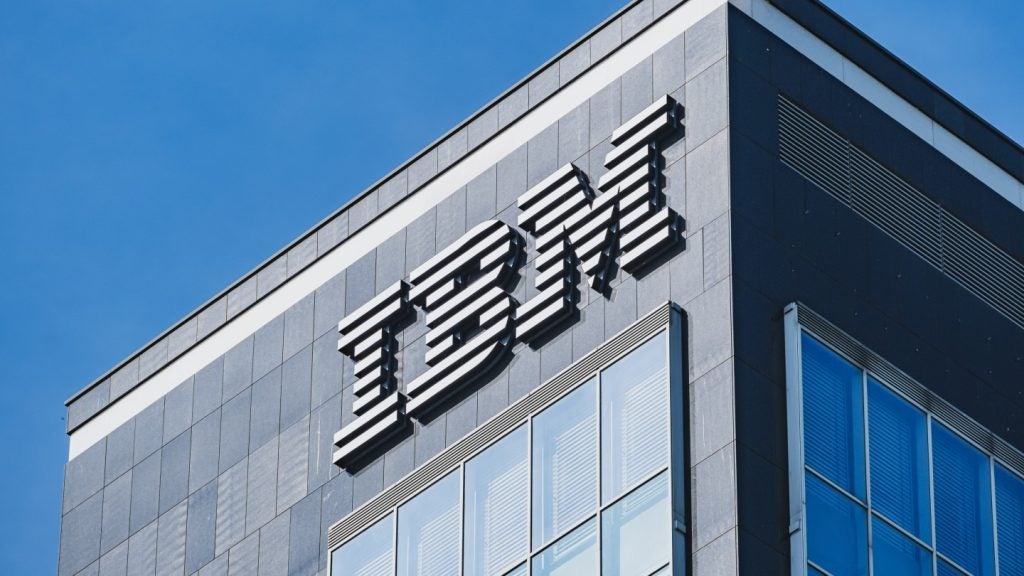
Fintech heads the Verdict list of the top five terms tweeted in disruptive tech in February 2020. These are based on data from GlobalData’s Influencer Platform. The top tweeted terms are the trending industry discussions happening on Twitter by key individuals (influencers) as tracked by the platform.
1. Fintech – 7,815 mentions
The need for fintech companies to articulate the benefits to banks and the fintech role as a global disruptor were leading topics. An article shared by Antonio Grasso, a digital transformation advisor, describes how the financial services industry is undergoing a complete makeover. This is because of fintech start-ups. From digital-only banks to payment innovations, fintech solutions are the preference, even for traditional financial companies.
The adoption of blockchain and blockchain wallets is also looming over the global finance industry opine experts, with a majority of the financial services companies increasing their investments in blockchain innovations. Michael Fisher, a tech evangelist, tweeted on the different ways the technology can help the environment.
In another tweet, Ron Shevlin, an industry analyst, shared an article on the five hottest technologies in banking. The author shared an article listing the top technologies disrupting the banking landscape. These included digital account opening, P2P payments, video collaboration, cloud computing, and application programming interfaces.
Banks that leverage digital to reinvent their businesses will do more than survive: they will thrive. Link >>> https://t.co/TqmRy1wqup @Atos @akwyz via @antgrasso #EmergingTech #Fintech #FinServ #banks pic.twitter.com/GJ4x6gf0ds
How well do you really know your competitors?
Access the most comprehensive Company Profiles on the market, powered by GlobalData. Save hours of research. Gain competitive edge.
 Company Profile – free sample
Company Profile – free sampleThank you!
Your download email will arrive shortly
Not ready to buy yet? Download a free sample
We are confident about the unique quality of our Company Profiles. However, we want you to make the most beneficial decision for your business, so we offer a free sample that you can download by submitting the below form
By GlobalData— Antonio Grasso (@antgrasso) February 20, 2020
2. Machine Learning – 4,968 mentions
The applications of machine learning across industries, especially in healthcare were popularly discussed in February 2020. According to Marcus Borba, a global thought leader and influencer, machine learning is being used to tag, classify and filter the vast amounts of real-time data. This is to help public health officials assess the risk factors of the coronavirus, and thereby predict the course of the disease and its impact.
In other news, Ron Shevlin, a financial services marketing expert, shared an article on how chatbots and machine learning will transform the banking sector. However, the article stated that few community-based financial institutions had deployed these technologies, and that most institutions landed up not investing much than what was professed.
#AI to Help in #Coronavirus Response
via @spelldotrun
CC: @mvollmer1 @YvesMulkers @KirkDBorne @evankirstel @Ronald_vanLoon @FrRonconi @Fabriziobustama @alvinfoo #ArtificialIntelligence #DeepLearning #HealthTech #DataScience #Medicine #MachineLearning #BigData #ML #Healthcare pic.twitter.com/kBGvQYtqPM
— Marcus Borba (@marcusborba) February 9, 2020
3. IoT – 4,689 mentions
Described as the next frontier, and expected to transform almost everything, the internet of things (IoT) and its application in key industries was popularly discussed. For instance, Ronald van Loon, a top influencer of technologies, shared a video on how almost all unimaginable devices will be connected to the internet. For example, smart heating systems that can detect if you’re home, to refrigerators that can tell you if you’re running short of products.
On the automotive front, statistics show that by 2034, autonomous vehicles will make up only 10% of all the vehicles bought and sold. This was tweeted by Antonio Grasso, a digital transformation advisor. The survey further revealed that approximately 42% of the US public refused to ride on an automated vehicle altogether. While the computer systems in cars are expected to become highly sophisticated, safety and cost might hinder widespread adoption. In other news, Apple is looking to integrate the ‘car key’ feature in its iphones and watches.
Meanwhile, logistics companies are connecting to IoT technologies with legacy systems. This is to improve visibility and agility through in-fleet sensors that can aggregate all kinds of data. North America, Western Europe, and developed Asia, are quickly catching up to this trend of integrating telematics hardware and software in trucks.
What is the #InternetOfThings? Why is it so important?
by @wef#Tech #IoT #DigitalTransformation #Automation #SmartCity #Driverless #SmartCars #SmartHome #CyberSecurity #FutureofWork #CES2020Cc: @haroldsinnott @arduino @jimharris @simonlporter @stephanenappo pic.twitter.com/RbBZEfD3EV
— Ronald van Loon #HPEDiscover (@Ronald_vanLoon) February 17, 2020
4. Artificial intelligence – 4,617 mentions
Innovations and worldwide spending on artificial intelligence (AI) were some of the popular topics discussed during the month. For instance, Antonio Grasso, a digital transformation advisor, shared an article on the worldwide spending on AI expected to reach approximately €45 billion in 2021. The article revealed that banking, financial services, and insurance would be spending the highest ($12bn) in AI tools in 2021.
AI investments have seen a surge because the technology is helping meet the world’s biggest problems. For instance, an AI tool can help detect breast cancer five years in advance according to an article shared by Ronald van Loon, a top technology influencer. Likewise, it can help detect skin cancer, predict the recovery of coma victims, analyse eye scans, and also trial new drugs much faster. This is according to Michael Fisher, a tech evangelist.
Harold Sinnott, a social media and digital marketing consultant, also highlighted its applications beyond healthcare such as in highly personalised education and energy conservation.
What are 7 ways that #AI is transforming healthcare? {Infographic}#ArtificialIntelligence #MachineLearning #DataScience #Healthcare #ML #DeepLearning #DL #Medicine #HealthTech @wef pic.twitter.com/i86ijfTB4l
— Michael Fisher (@Fisher85M) February 5, 2020
5. Cloud – 3,021 mentions
Cloud neutrality, digital transformation, and combining of technologies to achieve business scalability were discussed. Molly Wood, a tech correspondent, shared an article about the need to talk about cloud neutrality. The article stressed that it was unfair that the cloud economy lay in the hands of just a few companies, who are actually hosting their own competition.
Andy Jassy, the CEO AWS, Amazon‘s cloud computing business, shared an article on partnering with Carrier, a leading air conditioning brand, to drive the latter’s digital transformation strategy. Carrier is planning to streamline its operations and improve the pace of innovation, with more sustainability and intelligent buildings. It will do this by building a data lake on the Amazon Simple Storage Service (Amazon S3). It will also use its ML services to derive insights from the real-time data across its supply chain and manufacturing.
Yves Mulkers, a data strategist, highlighted companies such as Veritone and Quantifi that have grown by using cloud platforms. He shared an article stating that the cloud is fundamental to the AI model. This is because it provides companies with the large data sets, as well as the scope to scale.
Pretty much the whole digital economy lives in "the cloud." Problem is, the cloud is privately owned infrastructure run by a few companies who are hosting their own competition. So how long can *that* arrangement work out? Me, today, in @Wired. https://t.co/NBl9pfhE57
— Molly Wood (@mollywood) February 10, 2020







